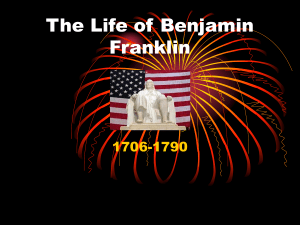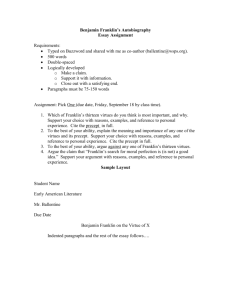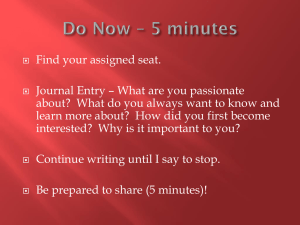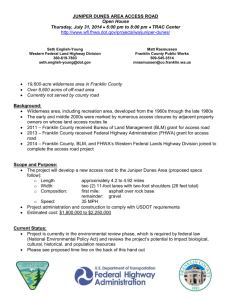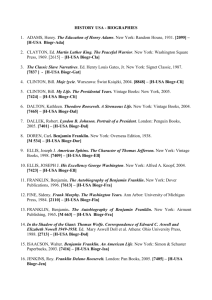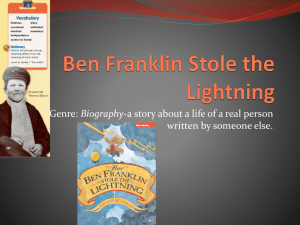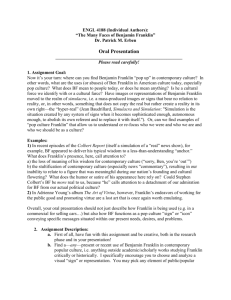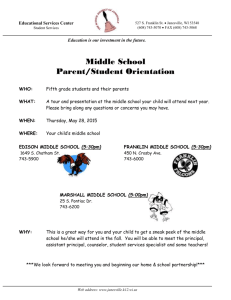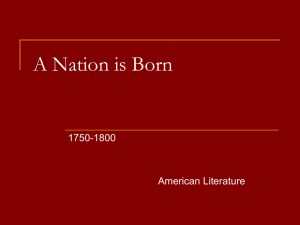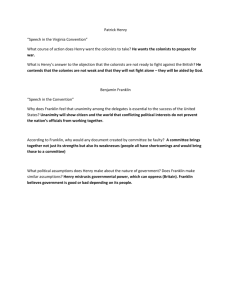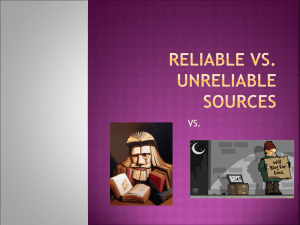Central Questions for the Entire Semester
advertisement
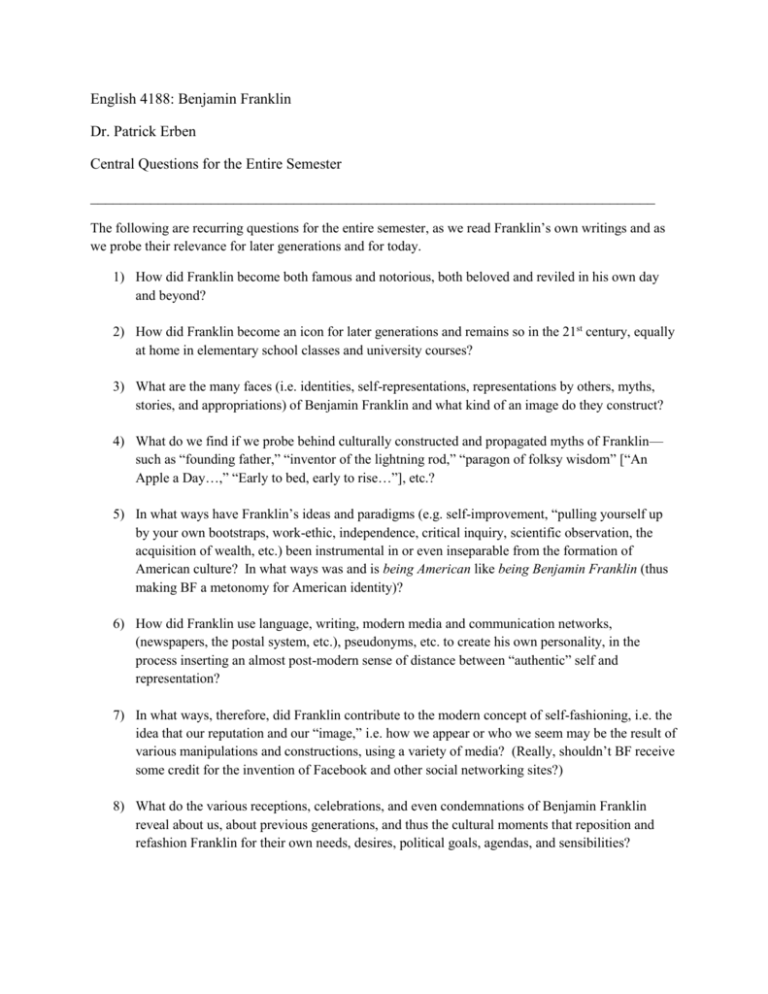
English 4188: Benjamin Franklin Dr. Patrick Erben Central Questions for the Entire Semester ___________________________________________________________________________ The following are recurring questions for the entire semester, as we read Franklin’s own writings and as we probe their relevance for later generations and for today. 1) How did Franklin become both famous and notorious, both beloved and reviled in his own day and beyond? 2) How did Franklin become an icon for later generations and remains so in the 21st century, equally at home in elementary school classes and university courses? 3) What are the many faces (i.e. identities, self-representations, representations by others, myths, stories, and appropriations) of Benjamin Franklin and what kind of an image do they construct? 4) What do we find if we probe behind culturally constructed and propagated myths of Franklin— such as “founding father,” “inventor of the lightning rod,” “paragon of folksy wisdom” [“An Apple a Day…,” “Early to bed, early to rise…”], etc.? 5) In what ways have Franklin’s ideas and paradigms (e.g. self-improvement, “pulling yourself up by your own bootstraps, work-ethic, independence, critical inquiry, scientific observation, the acquisition of wealth, etc.) been instrumental in or even inseparable from the formation of American culture? In what ways was and is being American like being Benjamin Franklin (thus making BF a metonomy for American identity)? 6) How did Franklin use language, writing, modern media and communication networks, (newspapers, the postal system, etc.), pseudonyms, etc. to create his own personality, in the process inserting an almost post-modern sense of distance between “authentic” self and representation? 7) In what ways, therefore, did Franklin contribute to the modern concept of self-fashioning, i.e. the idea that our reputation and our “image,” i.e. how we appear or who we seem may be the result of various manipulations and constructions, using a variety of media? (Really, shouldn’t BF receive some credit for the invention of Facebook and other social networking sites?) 8) What do the various receptions, celebrations, and even condemnations of Benjamin Franklin reveal about us, about previous generations, and thus the cultural moments that reposition and refashion Franklin for their own needs, desires, political goals, agendas, and sensibilities?

